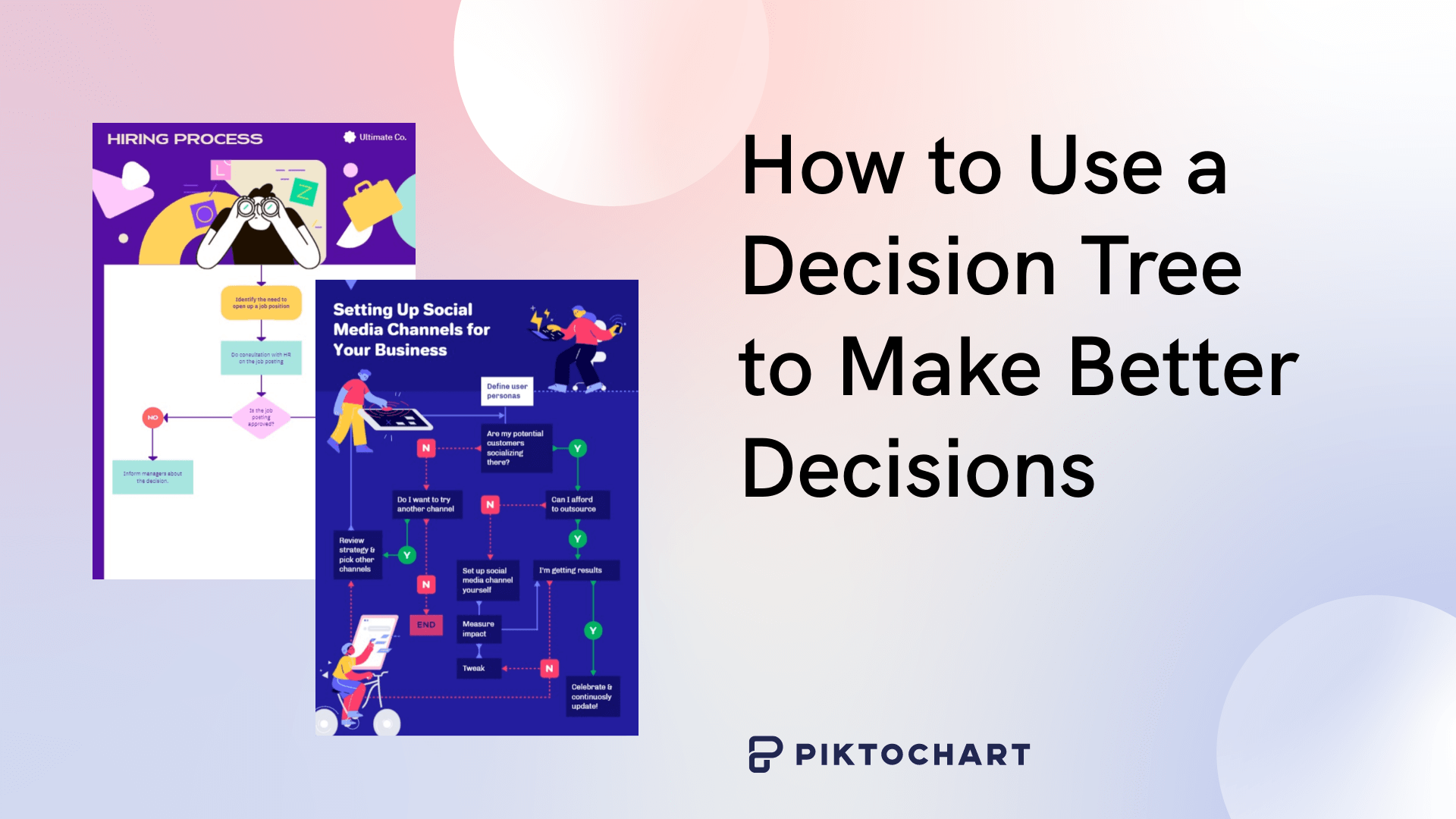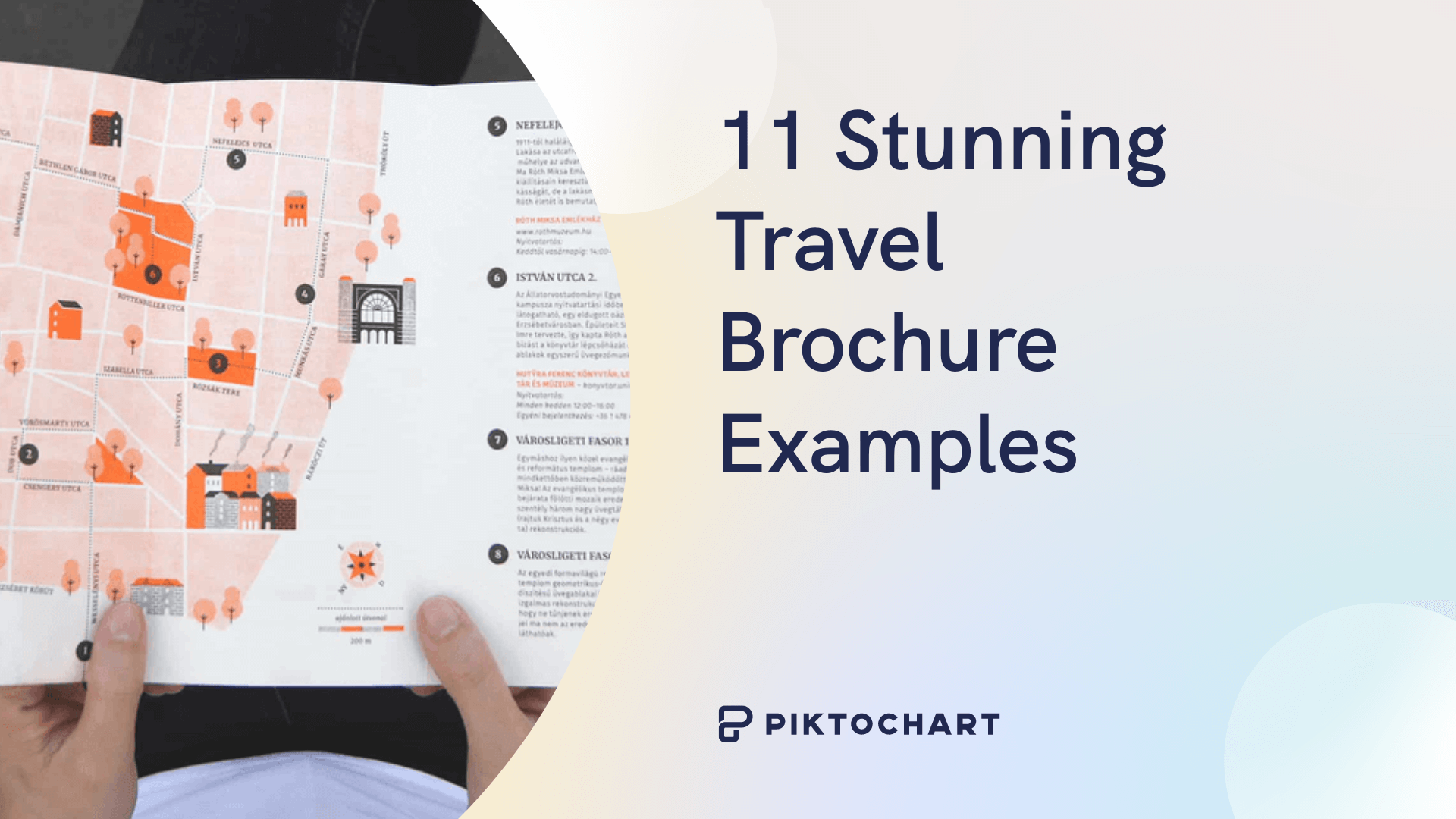Table Of Contents
Piktochart Logo Design Diaries
Our creative communications design team just took on a delightful challenge: giving a fresh twist to some iconic logos and influential companies! We’ve put our Piktochart touch on them in 30 minutes (it was a real test!), and we’re going to share our lessons learning from the exercise and the history of these logos as well as what we learned.
We have also created hundreds of logo templates for you to get started with your own designs! Get started with a free account.
Amazon Logo

The brief: Reimagine the Amazon logo in a minimal and futuristic style. We opted for a futuristic font and created a simple logotype, emphasizing the letters. We love the message behind the curvy orange line representing customer satisfaction, endless product selection, and end-to-end service, so we decided to keep this element in our redesign.
Origin: The company started as an online bookstore, and its original logo featured a giant A with a river-like curve beneath it, resembling the Amazon River.

Image credit
Current Logo: Among the five brands we’re studying today, Amazon probably went through the most drastic evolution. The familiar Amazon logo we see today, with its arrow pointing from ‘A’ to ‘Z’, conveys that they sell everything from A to Z. The arrow also forms a smile, suggesting customer satisfaction and positivity. Amazon is the world’s most customer-obsessed organization, so their logo also speaks the same language!
Apple Logo

The brief: Reimagine the Apple logo in retro style. The key to retro logo design is the linear design with a rich color palette. A great retro logo often includes the 90s old-school styling we’re trying to include through the display font choice in our Apple logo redesign.
Origin: The very first Apple logo, designed by co-founder Ronald Wayne, depicted Sir Isaac Newton sitting under an apple tree. It was a detailed, pen-and-ink illustration.

Image credit
Current Logo: The iconic apple with a bite taken out of it was designed by Rob Janoff in 1977. While there have been various theories about the bite (including puns on “byte”), Janoff said it was done to clarify that it represented an apple, not a cherry or tomato. The monochromatic apple used today is sleek and immediately recognizable.
Google Logo

The brief: Reimagine the Google logo in retro style. We are aiming for a fun 90s pop culture theme. We create a few designs using wash-off versions of Google’s colors and sans-serif stylized fonts to achieve a retro look and feel.
Origin: The original Google logo was designed by Sergey Brin, one of Google’s founders, using GIMP software. It had a distinct exclamation mark, reminiscent of the Yahoo! logo.

Image credit
Current Logo: Google’s logo has seen several redesigns. The modern version, introduced in 2015, features a sans-serif typeface that’s playful yet simple, aligning with the company’s straightforward approach to its massive array of products and services.
Nike Logo

The brief: Reimagine the Nike logo in a bold, minimalist style. We attempted to keep Nike’s recognizable “swoosh” icon while forming the letter “N” by combining the two. By manipulating negative space, we created a “thunder” icon that represents speed and power.
Origin: The Nike “Swoosh” logo represents the wing of the Greek goddess Nike, the goddess of victory. The logo was designed by graphic design student Carolyn Davidson in 1971 for just $35.

Image credit
Current Logo: The simple Swoosh has seen minor tweaks over the years but remains largely unchanged, often appearing without the brand name, signifying Nike’s global brand recognition.
Starbucks Logo

The brief: Reimagine the Starbucks logo in a minimalist style. The Siren illustration in green color makes this world renowned brand highly recognizable. So we recreated the iconic emblem using minimalistic shapes in Piktochart.
Origin: Starbucks’ logo is based on a 16th-century Norse woodcut of a twin-tailed mermaid, or siren. The founders wanted something that captured the seafaring tradition of early coffee traders.

Image credit
Current Logo: The logo has undergone several revisions since its inception. The modern version features a close-up, streamlined design of the siren, without any text, making it instantly recognizable globally.
You can also create eye-catching timelines using professionally-designed templates by signing up for free.
Piktochart’s 7 Lessons on Creating a Company Logo
Embarking on the world of logo design with Piktochart?
Here’s our curated guide to creating a logo that truly resonates:
1. Dive Deep with Branding
Before anything, understand your brand’s core values and message. A logo is more than just a company name —it’s your brand’s identity!
Every element, shape, emblem that goes on your logo has to have a meaning. How would you incorporate your company or business name? Are you trying to keep it professional? Do you want it to give off a modern vibe? Is it an affordable product for all?
2. Simplicity is Key
Sometimes, less really is more. Opt for a clean, uncluttered design that’s instantly recognizable.
You may want to have one element or image that represents your brand. The eaten apple is now Apple inc. It became one of the world’s most famous icons.
Some brands go with a slogan, and some without. It all depends on your brand identity and context.
3. Color it Right
Choose colors that evoke the right emotions. Piktochart’s palette tool can guide you to harmonious color combos!
4. Typography Talks
Choose a font that align with your brand personality. Whether you’re all about elegance or playfulness, there’s a font waiting for you. However, keep the font legible and “user-friendly”.
5. Versatility Matters
Ensure your logo designs look stunning on all platforms – from business cards to billboards! Think about the logo against a dark or light background. Think about it square, vertical or horizontal.
6. Iterate and Improve
The first draft is just that—a draft. Refine, iterate, and polish until your logo truly shines. Don’t be afraid to show a few concepts to your customers or people who could give you feedback. It is subjective, but that’s also why you should not be afraid to own it.
7. Keep It Consistent
(For established brands)Once you have a logo design, refrain from too many changes. Spotify once tried to change their green color hue and it was met with a furious uproar. History teaches us that customers like a consistent brand identity. Keep changes minimal after its launch to make it a continuous success!
Piktochart offers professionally designed templates for all your visual communication needs. It is your one-stop shop for presentations, posters, logos, email signatures, infographics, and more. Get started for free today.
Free Logo Templates
Guess what? The creativity doesn’t stop here! Not only have we played around with iconic logos, but Piktochart also offers you FREE templates to kickstart your own logo journey. You can use them as ideas and inspiration, or jump right in and get started with your logo creation.












We hope the templates above inspired you to get started to create your own “icon”!



